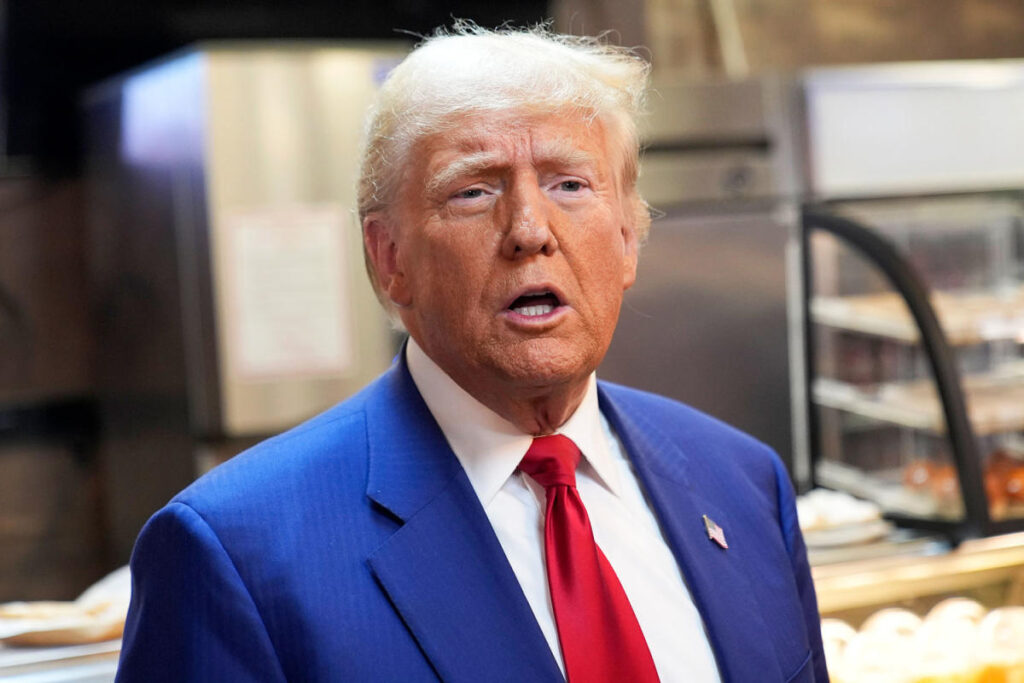Former President Donald Trump recently faced scrutiny regarding allegations that he made positive remarks about Adolf Hitler during his presidency. In response to a question from a reporter, Trump vehemently denied ever suggesting he needed “the kind of generals that Hitler had.” He emphatically stated, “I never said that,” directly addressing claims made in an article from The Atlantic. Trump criticized both the publication and the article’s author, labeling The Atlantic a “failing magazine.” In contrast, the publication’s spokesperson, Anna Bross, reaffirmed the credibility of their reporting, standing by the assertions that Trump had made comments about needing “loyal generals” akin to those in Nazi Germany.
The article in question alleged that Trump expressed a desire for generals like those under Hitler during a private conversation while in office. This report cited two unnamed individuals who claimed to have overheard Trump stating that he wanted leaders who were “totally loyal” and quick to follow orders. The context of this discussion raised alarm, particularly given the historical ramifications of Hitler’s regime, in which approximately 6 million Jews were killed during the Holocaust, alongside millions of other civilian casualties in World War II. This historical backdrop has intensified the criticism surrounding Trump’s alleged comments, as comparisons to Nazi leadership are particularly sensitive in American political discourse.
Further complicating the narrative, former White House chief of staff John Kelly engaged in discussions with Trump regarding “German generals.” According to Kelly’s recounting, when Trump referenced these generals, he initially seemed unclear about which historical leaders he meant, and when Kelly asked if Trump was referring to figures like Bismarck or the Kaiser, Trump allegedly specified Hitler’s generals. This exchange, documented in reports from The Atlantic and The New York Times, prompted further backlash as Kelly claimed Trump stated that “Hitler did some good things,” a remark Trump also denied during his press conference.
Trump’s campaign team has actively condemned Kelly’s assertions as false, labeling him as someone who has “beclowned himself” for recounting what they consider debunked stories. Additionally, Trump’s past criticisms of Kelly paint a clear picture of their contentious relationship; Trump has described Kelly in derogatory terms, suggesting a personal vendetta might be at play in Kelly’s recollections. The dynamic between them and the campaign’s pushback reflects a broader strategy to maintain Trump’s narrative and discredit any dissent from former officials.
In the aftermath of the reported comments, Vice President Kamala Harris and her campaign seized upon the opportunity to spotlight the situation in an advertisement. Harris cited the implications of Trump’s alleged remarks to highlight what she characterized as his increasingly erratic behavior. The ad draws on the emotional weight of the Holocaust and the significance of historical awareness in contemporary political contexts, seeking to frame Trump’s comments as symptomatic of a deeper issue with his leadership style.
The discussions surrounding Trump’s alleged remarks about Hitler raise significant ethical considerations about political rhetoric and its impact on historical memory. As the nation grapples with a legacy marred by division and extreme ideologies, such claims threaten to evoke strong reactions from both historians and the public. The ability to engage with history responsibly is essential in a democratic society, and any equivocation on figures like Hitler invariably invites backlash and scrutiny. As narratives unfold following the reported comments, the discussions signal the ongoing struggle to navigate political discourse with an understanding of history’s gravitas.

